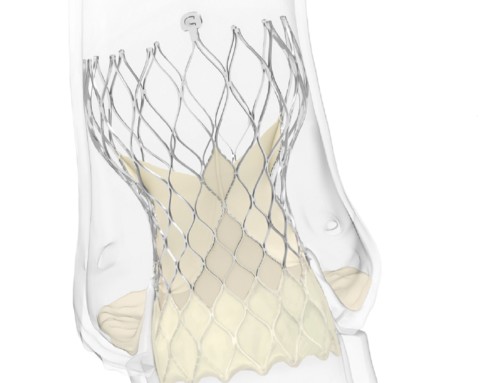
The FDA has approved Evolut R, Evolut PRO (Medtronic), Sapien 3 and Sapien 3 (Edwards Lifesciences) for the management of low-risk patients with severe aortic stenosis. The approval follows the publication—in the New England Journal of Medicine—of two studies that showed positive results with these devices in low-risk patients. Prior to the FDA approval, the devices were only approved for intermediate-risk and high-risk patients.
The approval for Sapien 3 and Sapien 3 Ultra was based on data from the PARTNER 3 trial, which compared outcomes with TAVI (with the Sapien 3 valve) with those with surgical aortic valve replacement. The study found that Sapien 3 was associated with a 46% reduction in the event rate for the primary endpoint of the trial—a composite of all-cause mortality, all stroke and rehospitalisation at one year—compared with surgery.
The Evolut Low Risk trial provided the data for the approval of Evolut R and Evolut PRO for low-risk patients. The data showed that, compared with surgery, TAVI with an Evolut device was associated with significantly lower rate of the composite of all-cause death or disabling stroke at 30 days. They also indicate that TAVI has superior haemodynamic performance, with significantly lower mean aortic valve gradients and larger effective orifice area, but a higher pacemaker rate.
By approving these valves for low-risk patients, the FDA has become the first medical products regulatory body in the world to give such an indication for TAVI valves. Bram Zuckerman (director of the Office of Cardiovascular Devices, FDA’s Center for Devices and Radiological Health, USA) says: “This new approval significantly expands the number of patients that can be treated with this less invasive procedure for aortic valve replacement and follows a thorough review of data demonstrating these devices are safe and effective for this larger population. As the FDA assesses new medical technologies or expanded uses for previously approved products such as these, the agency remains committed to evaluating evidence from clinical trials and real-world clinical data in both the premarket and postmarket settings to ensure patients have access to high-quality, safe, and effective medical devices.”
However, a FDA press release reports that TAVI devices should not be used in “patients who cannot tolerate blood thinning medications or have an active infection in the heart or elsewhere”. It adds that Evolut R and Evolut PRO devices should not be used in patients who have sensitivity to titanium or nickel. “Furthermore, the long-term durability of transcatheter heart valves compared to surgically implanted valves has not been established. Patients, especially younger ones, should discuss available treatment options with their heart care team to select the therapy that best meets their expectations and lifestyle,” the press release specifies.
As part of the approval of these devices, the FDA is requiring Medtronic and Edward Lifesciences to continue to follow patients enrolled in their randomised studies for 10 years to further monitor transcatheter aortic valve safety and effectiveness, including the long-term valve durability. The companies will also participate in the Society of Thoracic Surgeons/American College of Cardiology Transcatheter Valve Therapy Registry to provide FDA with additional surveillance of these devices over a 10-year period.
N.B: Coinciding with their publication in the New England Journal of Medicine, both PARTNER 3 and the Evolut Low Risk trial were presented at the 2019 American College of Cardiology (ACC) Scientific Session (28–30 March, Chicago, USA).





